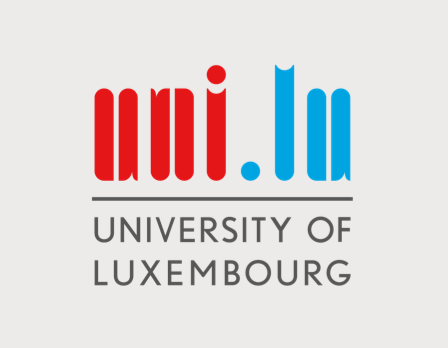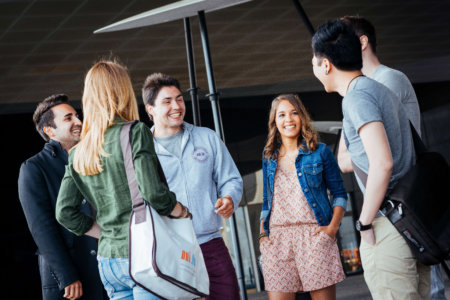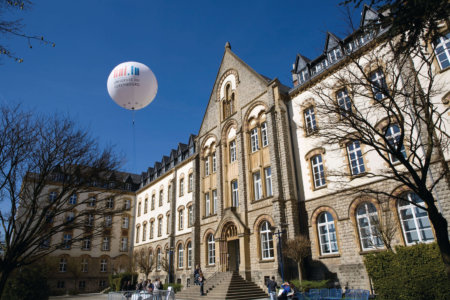From the fun to the fascinating, a University of Luxembourg graduate has plenty of stories to share about their fulfilling time there. Since its creation 20 years ago in 2003, over 14,000 students have graduated from the young university and their stories relate how the institution shaped their lives and world views.
Situated at the heart of Europe, the University was founded with the goal to become a leading hub of academic and research excellence in Luxembourg. The new institution was set to be research-oriented, international and multilingual. Today, the University has not only realised this vision but exceeded expectations.
It sits among the top 250 universities worldwide, is ranked among the top five globally for its international outlook, and is 25th among the world’s young universities, according to the Times Higher Education. QS World University Rankings: Europe ranks the University among the top 27% in Europe.
Positive rankings and good reviews from more than 14,000 graduates don’t happen by chance. It’s the result of persistent effort from faculty, staff and students. With courage, ideas and a vision, they’ve driven the University to become a home of over 7,000 students — 60% of which are international — and approximately 2,400 staff members from across the globe. It offers 18 Bachelor’s degrees and 46 Master’s degrees, as well as several continuing courses.
For the duration of their studies, the University becomes a second home for students. The international campuses, the bilingual courses and the student life and activities all play a major role in the lives thousands of students every day. Here are four stories from graduates who would go on to become impactful educators and researchers themselves.

Marcin Seredynski graduated in 2009 from the University of Luxembourg and is now the Head of Innovation & Research at E-Bus Competence Centre. Source: University of Luxembourg
Marcin Seredynski
Marcin Seredynski arrived at Kirchberg Campus in 2004 to pursue a PhD in Computer Science. “The main reason I decided to come to Luxembourg was because it was a very new university, which means there’s a lot of exciting, dynamic things going on,” he shares. Beyond this, unique funding schemes that support research were another major draw for the PhD student.
One thing he learned from his time at the University was being able to provide and deal with constructive criticism. Seredynski became more and more creative through this process=. “The second very important thing is to realise how important it is to understand the audience of your work, so to whom I am addressing what I’m doing,” he adds.
Today, the PhD graduate is the Head of Innovation and Research at the E-Bus Competence Centre in Luxembourg. He focuses on public transport electrification and sustainability, identifying how to use electric buses in the best possible ways.

PhD programmes in social sciences are designed to provide students with comprehensive skills necessary to achieve the highest level of competence in a given area of study. Source: University of Luxembourg.
Martine Hoffmann
What Martine Hoffmann loved about pursuing her PhD in Psychology was the constant learning she experienced in an “extremely inspiring academic environment.” She always felt “well embedded and supported.”
It also gave her a chance to travel to congresses and conferences, as well as an opportunity to engage with senior researchers and experts — valuable experiences that would later be helpful in her role as Head of Research Department at the GERO Competence Centre of Gerontology.

A PhD from the University of Luxembourg helped Dave Blackburn pivot from the Canadian Armed Forces to academia. Source: University of Luxembourg
Dave Blackburn
As an officer in the Canadian Armed Forces, Dave Blackburn contemplated pursuing a doctoral programme. He found the perfect fit at the University of Luxembourg, where he pursued a doctorate in social sciences, specialising in the sociology of health.
“The most memorable moment was on 8 July 2011, when I defended my doctoral thesis,” he explains. “So it was a magical moment, from start to finish, right up to the honorary reception at the end.”
Currently, Blackburn is the Dean of Continuing Education, Partnerships, and Internationalisation at the University of Quebec in Outaouais. Previously, he was Director of the social work department, and before that, a professor and researcher at the same university.

From mathematics student to Associate Professor in Applied Statistics at the Department of Mathematics. Source: University of Luxembourg
Christophe Ley studied mathematics at the University in its first year in 2003. At that time, Ley wanted to become a high school teacher. While the graduate did go on to kickstart a vibrant career in mathematics, he returned to his alma mater in November 2021 to serve as an Associate Professor in Applied Statistics at the Department of Mathematics.
He credits his education here for making him the academic he is today. The intense workload taught him how to work efficiently. Ley recalls sitting through “seven exams within five consecutive days.” “My studies prepared me very well for my current profession because they laid the foundations for me to embrace a research career in mathematics,” he shares.
To delve deeper into the University of Luxembourg’s 20-year legacy, click here. For those interested in contributing to the next wave of innovation and progress, click here to learn more about admissions.
Follow the University of Luxembourg on Facebook, Instagram, X, LinkedIn, and YouTube













